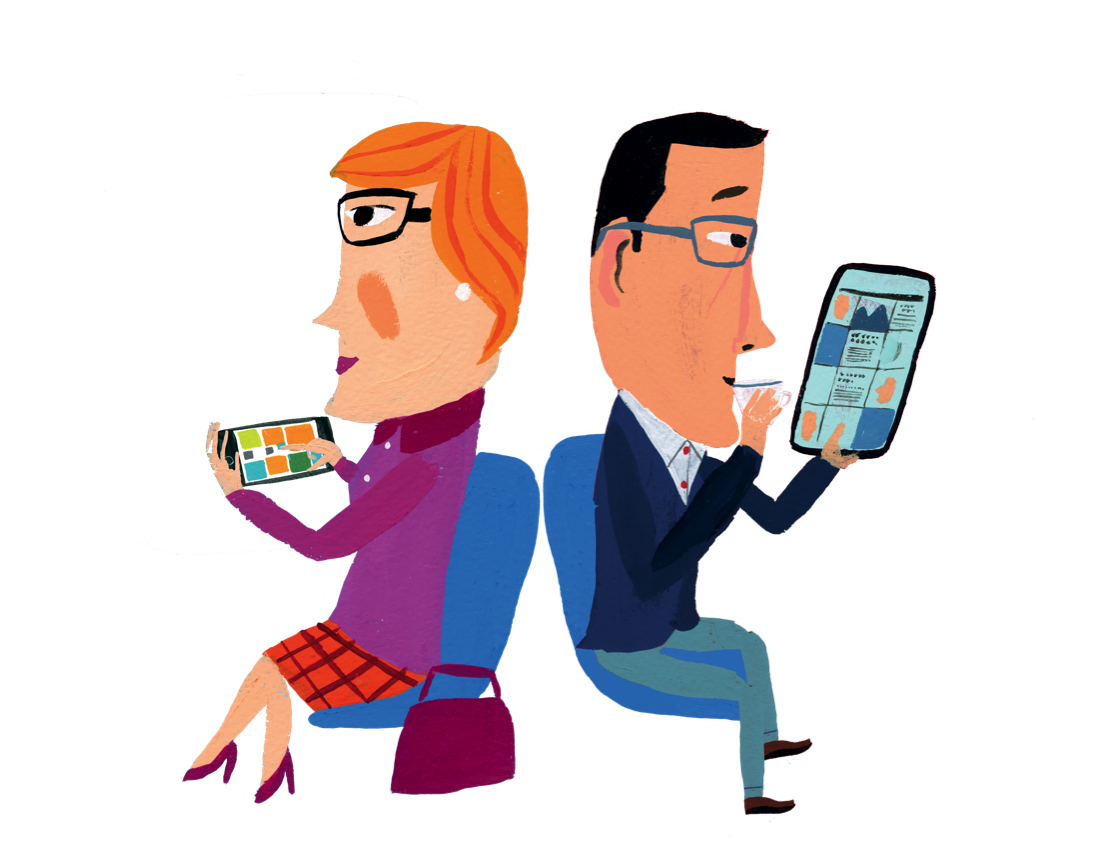Ramp up your page speed
So much time, effort and budget are being invested in making graphically app


So much time, effort and budget are being invested in making graphically appealing and jaw-dropping websites with the most spectacular UX design in order to attract visitors, while one of the most important aspects of a website often is forgotten about – the importance of page speed. Research shows that if a site is not loaded within 3 seconds, the visitor has most likely lost interest and moved elsewhere. Three seconds. The same applies to mobile traffic. Also, the likelihood of getting a visitor to return to your website is a lot higher if you don’t keep them waiting the first time. Page speed may be one of the easiest fixes to make your website more efficient, and we will help you explain how.
Page speed is defined by how long it takes for the webpage to load its full content. Page speed is often confused with site speed, and these two are not the same thing. Page speed refers to a specific page’s load time, while site speed is the average of several page views on a site.
The number of seconds people are willing to wait for your website to load is just getting smaller and smaller in line with the inpatient minds of today’s consumers. The longer you keep a visitor waiting, the more interest they are losing. For every second you make them wait, the higher are the chances they will turn to another website and never return to yours.
Why is Page Speed so important?
SEO
Google has used page speed in its algorithm to rank sites for over a decade already. How fast your site responds to a web request can have a huge impact on where in the search results your site ends up. Another thing to consider is that the slower your page load is, the fewer pages search indexes can crawl and this affects the indexation of your site.
Session length
A fast page load is a lot more likely to keep visitors on the site and continue reading and scrolling. Session length also improves the site’s ranking, as search engines rank the site as something people are interested in and worth showing to other visitors.
Conversion rate
This goes a bit hand in hand with session length, as the faster your page is, the better chance you have to keep visitors there longer and convert them from a visitor into a client. Running campaigns and spending large amounts of money on advertising is a waste of money if the clickers aren’t getting their hands on the content you want to show them.
Revenue
Let’s sum up how SEO, session length and conversion rate are affected by page speed. SEO helps visitors find your site and your products or services. A fast site is more likely to keep visitors on the site for a longer period of time, and this may result in a conversion or transaction. From an ad tech point of view, the longer session lengths you have, the more revenue you will gain from ads placed on your site.
How to ramp up Page speed?
Analyze your site
The first thing you need to do is to test your site’s speed in order to know the situation. If your site is not visibly awfully slow, it can be difficult to tell how your site performs, especially if you happen to be connected to an excellent network. There are numerous free page speed tests out there which will help you figure out how fast or slow your site is and what you could do in order to increase your score. Here are our favorite ones.
Clean your site
Prioritize the features that create a great user experience and ditch the rest. Scan through your analytics and see where visitors engage. If nobody is using your social share buttons ever, do you really need them there? Theme based websites are usually quite scaled-down – before you start adding the features you need for your site. Plugins and tweaked features that did not come with the theme to begin with, can have a huge impact on your site speed. Custom-made websites usually come with a heavier price tag, but are in general faster, if your designer has not gone wild on cool yet heavy UX design.
Reduce heavy images & videos
This is probably the easiest to fix and might save you some valuable load time. Use JPEG for images and compress the files to a minimum, without sacrificing too much of the quality. There are great plugins for optimizing image size, yes this might actually be a plugin you want to add to your site if possible. Other options such as using ccs sprites to compress your images into one image that loads at once will leave you with fewer HTTP requests meaning faster load. Yay.
Compress your files
Images are not the only thing on your site that can be compressed, your files can also be heavy on the site. There are lots of different software for file compression today that reduce the size of your code drastically. Gzip is a popular method of compressing files and is also considered to be one of the most effective ways to minimize HTTP requests and reduce response time. You can use a plugin for this if you use a mainstream CMS or install it manually in a number of minutes if you are technically somewhat talented.
Improve servers
The better servers you have, the more traffic can visit your site at once without it affecting your page load. Your servers also respond to the number of resources your website has packed on it and what hosting plan you have chosen. When your site grows your initial hosting plan might not be effective enough, which slows the site down and in the worst-case scenario, lowers your traffic. Google advises you to have a response time that is less than 200 milliseconds. We suggest you aim for 100ms and no more than 300ms. If your response time exceeds 500ms you need to get things moving quickly.
Use a CDN
Content Delivery Networks, also known as CDN, is a network of servers around the world. CDN servers fasten content delivery by providing content to web users from the closest geographical location. Besides this, you can also store files such as media, CSS, and JS on your CDN, making your page load super fast. This is not “free of charge” so to say, it’s very expensive, but oh so worth it.
Enable browser caching
Caching is a process where you store different types of files, documents, media, CSS on visitors’ hard drives. This will make the loading process extremely fast the next time they visit your website, as the data is already stored and no new requests need to be made to the server.
Final words
Hopefully, we have convinced you that having a fast page load is crucial in today’s world. Website visitors expect your site to load within a few seconds, and if you fail to deliver at this point the risk of turning a first time visitor into a never-again visitor is very high. Making sure your site loads is a relatively cheap way to ensure you are not losing any clients, conversions or website revenue.
If you are looking for a website monetization partner, Kiosked is here to help. Reach out to us or get started immediately by signing up.


